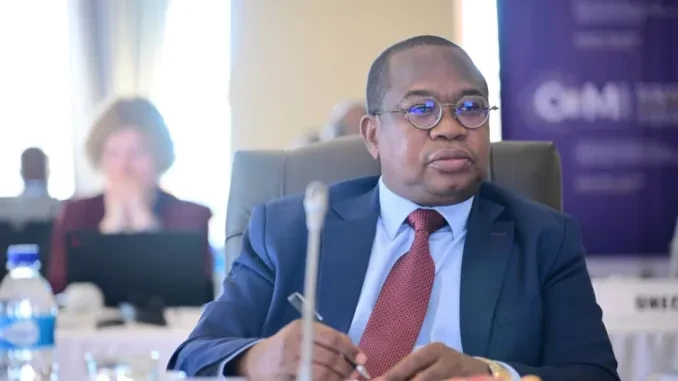
The trust consumers have in the concept of banking is a defining characteristic of why they give banks their money instead of keeping it under mattresses.
Report by Omen Muza
The banking sector in Zimbabwe is, however, currently plagued by a trust deficit partly held responsible for the money that is circulating outside formal banking circles. But why has the trust been lost? Because consumers no longer have confidence in the ability of banks to sustainably provide an affordable, secure and viable home for their savings.
General manager of Zimbabwe Pensions&Insurance Rights Martin Tarusenga’s recent comments are emblematic of this unfortunate state of affairs. He argues: “Any service provision and productivity thereof, is failed if business loses the trust of its clientele — this taking note that trust in the competitiveness of financial service providers is critical in persuading consumers to commit large financial outlays, for very long periods”.
“So will the trust return?” asks Brett King, a banking specialist from Banking4Tomorrow. “We are essentially dealing with reputational risk. Not for an individual brand or institution, but the collective reputation of the industry.
To assume we can fix this problem is to ascertain that we can have a co-ordinated approach to restoring consumer confidence as an industry. There are a few issues with this, namely that we generally leave such issues to regulators.
After all, what can one bank do about this on its own? The problem with this approach is that regulators can only regulate, they can’t make us do good things for our customers . . . Regulation is not going to restore trust. ”
At this point, I cannot help thinking that King had Zimbabwe specifically in mind. If indeed regulation will not restore trust — which is why the Reserve Bank of Zimbabwe (RBZ) has been leaning on banks to reduce bank charges and lending rates through calculated acts of moral suasion instead of outright regulatory interventions — what will restore trust?
- Chamisa under fire over US$120K donation
- Mavhunga puts DeMbare into Chibuku quarterfinals
- Pension funds bet on Cabora Bassa oilfields
- Councils defy govt fire tender directive
Keep Reading
King argues that building transparency and delivering great service at the coal face are the only two things that will bridge the gap. Recent findings, however, point to the fact that service levels in the banking sector in Zimbabwe are still at sub-optimal levels, a fact recently corroborated by results of a customer engagement survey by Industrial Psychology Consultants (Pvt) Ltd.
As for transparency, it is argued that this is not a particular strength of banks who are often accused of spending their entire existence finding ways to hide margins and fees. While service and transparency cannot be underestimated, what else can be relied upon to restore trust in banking?
Enhanced Communication strategies: As things stand, banks appear not to be doing enough to dispel the notion that has gained common currency that the best way of robbing a bank is apparently to own one. Effective communication strategies will be required to counteract this viewpoint.
Self regulation: At one point, the deafening silence of both the Bankers’ Association of Zimbabwe and RBZ was cause for concern.
However the envisaged Ombudsman’s Office and the crafting of a code of conduct for self regulation could both turn out to be effective lightning rods for the concerns of the banking public.
Service guarantees: Instead of just making mere promises, one concrete way in which banks can up the service ante is to introduce service guarantees whereby they undertake to process specific transactions within set time frames, failing which they pay an agreed amount.
This way the possibility of incurring a cost can be both a deterrent for rendering shoddy service and perfect motivation for delivering great service. In Uganda for instance, Standard Chartered Bank commits to processing personal loan applications within three days, otherwise they pay the customer Ugx 100 000 ($40,00)











